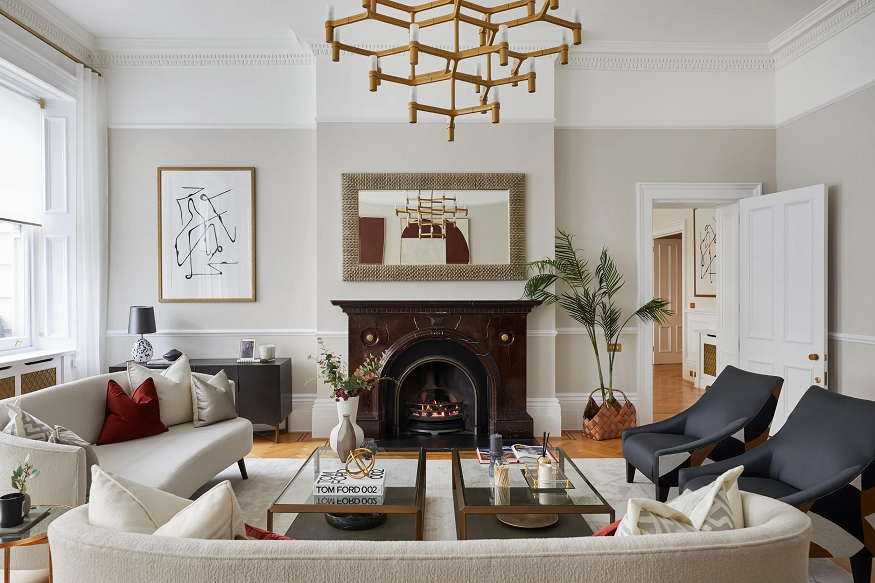
Selling a property is not just about putting it online and waiting for the right buyer to come along. The way a home looks, feels, and presents itself has a huge influence on how quickly it sells and at what price. In a competitive property market, first impressions matter more than ever. Buyers want to feel an emotional connection from the moment they walk through the door.
This is where a skilled property staging professional comes in. They can transform a home from an ordinary space into one that stands out and stays in a buyer’s mind. But choosing the right person for the job takes more than a quick search. It’s about finding someone with the right mix of creativity, market knowledge, and attention to detail.
Understanding the Value of Staging
The aim of property staging is to showcase a home in its best possible light. It’s not just about filling rooms with furniture or adding a few decorative touches. A professional stager knows how to make a space look larger, brighter, and more inviting. They highlight the home’s strengths while subtly downplaying any weaknesses.
First impressions happen fast – often within seconds of entering a property. A well-staged home can instantly make potential buyers feel welcome and excited about the space. This emotional reaction is what often leads to quicker offers and better sale prices.
Working with the Best Home Staging Company means you’re not only hiring someone with an eye for design. You’re choosing a team that understands buyer psychology, keeps up with current property trends, and knows how to create a presentation that appeals to your specific market.
Looking Beyond Aesthetic Skills
Good staging requires more than just style. While the ability to arrange furniture and choose appealing colours is important, a professional stager also needs to understand the local property market. They should know what kind of buyers are looking in your area and what style will appeal to them most.
For example, a young professional buyer might be drawn to sleek, modern interiors with clean lines and minimal clutter. A family buyer, on the other hand, might prefer warm tones, comfortable furnishings, and practical layouts. A great stager will adapt their approach based on who they’re trying to attract.
They also need strong organisational skills. Staging often involves working under tight timeframes and within specific budgets. Managing furniture hire, deliveries, and styling schedules requires precision and planning.
Reviewing Portfolios and Past Work
A stager’s portfolio can tell you a lot about their skills and versatility. Look for before-and-after photos that show a clear transformation in each property. These images should demonstrate how they’ve improved space, light, and flow, not just added decorative items.
Ask about their most recent work to see if they’re keeping up with current design trends. Staging styles evolve, and you want your property to feel fresh and relevant. If possible, request references from past clients. Their feedback can give you a better idea of what it’s like to work with that stager, from communication to results.
Communication and Collaboration
The best property staging professionals work closely with their clients. They listen to your needs, understand your budget, and take into account your preferences while still guiding you towards choices that will appeal to buyers.
Communication is key. A good stager will explain their design decisions, showing how each choice supports the goal of making your home more attractive to the target market. Collaboration is also important. You know your home’s history and features, while they bring expertise in how to present it. When these perspectives come together, the results can be exceptional.
Understanding Costs and Value
It’s important to view staging as an investment rather than a cost. Well-staged homes often sell faster and for a higher price compared to those left empty or poorly presented. The return on investment can be significant.
Costs vary depending on the property’s size, the amount of furniture and accessories needed, and the duration of the staging. Some companies charge a fixed fee, while others base their prices on the number of rooms staged or the rental period for furniture.
Always ask for a detailed breakdown of what’s included. This could cover design consultations, furniture hire, styling, delivery, and removal after the sale. Some stagers offer packages ranging from light styling with a few key accessories to a complete transformation. The right option will depend on your budget, the property’s condition, and the competition in your local market.
Considering Local Market Knowledge
Local knowledge can make a big difference. A staging professional familiar with your area will understand what local buyers value most. They’ll know which features to emphasise and how to style a property in a way that aligns with regional preferences.
For example, a London flat might benefit from a modern, space-saving design with multi-functional furniture. A countryside cottage might be better suited to a cosy, rustic style with natural textures and warm lighting. Local insight allows a stager to tailor their approach for maximum impact.
Timing and Availability
When selling a property, timing is everything. The market can shift quickly, and you want your home ready to attract interest as soon as possible. That’s why it’s important to choose a stager who can meet your deadlines without compromising quality.
Ask about their current workload and how soon they could start your project. Also, consider whether your property needs any preparation before staging begins, such as repairs, painting, or deep cleaning. Some staging professionals can help arrange these services, which can save you valuable time.
Flexibility and Problem-Solving
Not all properties are straightforward to stage. Some have unusual layouts, limited natural light, or architectural quirks that make them more challenging. A skilled staging professional will be able to work around these limitations, turning potential drawbacks into unique selling points.
Flexibility is also important when unexpected issues arise. This could include last-minute changes in the sales process or a need to adjust the staging for a particular viewing. A professional who can adapt quickly will help keep the process running smoothly.
Trusting Your Instincts
Once you’ve done your research, checked portfolios, and spoken with potential staging professionals, it often comes down to trust. You’re giving someone responsibility for presenting one of your most valuable assets. You need to feel confident in their skills and approach.
Pay attention to how they respond to your questions. Do they listen carefully and show genuine interest in your property? Are they enthusiastic about the project? A positive working relationship often leads to the best results.
Final Thoughts
Choosing the right property staging professional is a decision that can directly affect how quickly your home sells and the price it achieves. It’s about more than finding someone with a good eye for design. The best professionals combine creativity with market insight, organisational skills, and a genuine commitment to helping you achieve your goals.
The right staging can turn a property into a place buyers can picture themselves living in. It can make rooms feel brighter, larger, and more welcoming. Most importantly, it can give your home an edge in a competitive market. By taking the time to select the right professional, you’ll be investing in a service that can significantly improve your selling experience and results.










Leave a Reply
You must be logged in to post a comment.